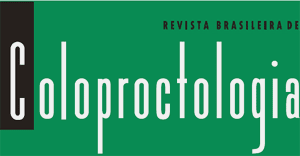One of the main objectives of molecular biology studies is the understanding of biochemical mechanisms which will ultimately contribute to biological behavior of tissues as observed by macroscopic or microscopic analysis. Hystological examination of normal colonic mucosa shows a relevant cellular turnover, determined by local concentration of proteins related to circle cell control. Among these proteins, APC seems to be a key element, promoting inhibition of other important circle cell stimulating proteins as beta-catenin and survivin. Thus, besides its role as genotypic landmark in familiar polipose patients, there are several strong evidences that APC acts in a trigger function in proliferative disorders of colonic mucosa from small adenomas to advanced infiltrative carcinomas. The current use of immunohystochemistry has provided relevant information of this close relationship between cellular protein profile and histological findings and have contributed to an improved comprehension of colorectal cancer carcinogenesis.
colorectal neoplasm; molecular biology; immunohystochemistry





